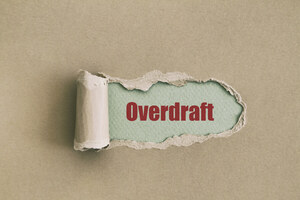
McGovern v. U.S. Bank
Reyna McGovern filed a lawsuit against U.S. Bank in 2018, alleging that the bank charged her overdraft fees when she had enough money in her account at the time she made the debit card purchase in question. The issue, according to the bank, was that another intervening transaction had reduced the balance to less than the necessary amount before the transaction settled.
In addition, McGovern complained about USB’s practice of charging accountholders two fees when they used out-of-network automated teller machines to check their balances before withdrawing funds. Neither fee was permitted by the account agreement that regulated checking accounts. McGovern claimed that this amounted to a breach of contract and a violation of California’s Unfair Competition Law.
The agreement required customers to submit disputes to arbitration and to waive their right to participate in class action lawsuits. Somewhat curiously, however, it also contained non-severability clause stating, “If any provision of this section is ruled invalid or unenforceable, this section shall be rendered null and void in its entirety.”
A procedural chess match
McGovern’s lawsuit sought class action relief for herself and similarly situated USB customers. She later amended her Complaint to seek a public injunction that would compel USB to change its practices in order to protect the future interests of the public. The request for a public injunction turned out to be pivotal.
Several California consumer protection laws, including the Unfair Competition Law, permit claims for a public injunction. Under McGill v. Citibank McGill v. Citibank, N.A., a private agreement signed by an individual to submit a dispute to arbitration cannot waive a claim for a public injunction. The logic is that an individual cannot waive a right that belongs to the public as a whole.
Nonetheless, in 2019, the Southern District of California held for USB and declared that the dispute must go to arbitration. The decision seems to have been based on the court’s belief that McGovern’s request for a public injunction was a ruse because the remedy sought would really provide relief only for herand other USB customers.
Shortly thereafter, in Blair v. Rent-a-Center Inc., the Ninth Circuit held the McGill rule was not preempted by the Federal Arbitration Act in cases where a plaintiff requested public injunctive relief. It was on this basis that McGovern asked the Southern District of California to reconsider their decision.
Court decides to reconsider in light of Blair
The court agreed and vitiated the entire arbitration agreement. McGovern v. U.S. Bank may now proceed to trial. This was a surprise. Courts are generally disinclined to reconsider their own decisions.
Some had speculated that the agreement would be enforced with respect to her class action claims and that her individual claims would be sent to arbitration. This usually ends a plaintiff’s efforts, since the process of arbitration is notoriously unfavorable to plaintiffs. The claim for a public injunction, if it survived at all, might not bring much more than a sense of justice to accountholders who believed they had been bilked out of funds by the bank.
Without deciding whether McGovern’s claim for a public injunction was genuine, the court focused on the non-severability clause in the arbitration provisions. It opined that, since the arbitration clause could not be enforced with respect to the public injunction claim, it could not be enforced with respect to any of McGovern’s claims.
Suddenly, after two years, the battle over the proper forum was over. Now perhaps her substantive claims may be decided in the judicial system. But procedure matters and the decision may have far-ranging consequences.
What about other excessive overdraft fee lawsuits?
It is important to remember that the McGovern decision depends on two things: the existence of a non-severability clause in the mandatory arbitration provisions of the account agreement, and the inclusion of a claim for a public injunction in the Complaint. If the decision is narrowly interpreted, those two elements will be vital.
READ MORE EXCESSIVE OVERDRAFT FEE LEGAL NEWS
Customers are likely to receive a notification, either by mail or electronically, telling them that unless they opt out by a given date “certain amendments” to their accounts will take effect. Do not throw that away, delete or ignore it. Read it and, if possible, take it to your attorney.
The second element, a request for public injunction under the appropriate California consumer protection law, is also key. Make sure that it is included in your Complaint if you file a lawsuit against your bank because you have been charged excessive overdraft fees.
